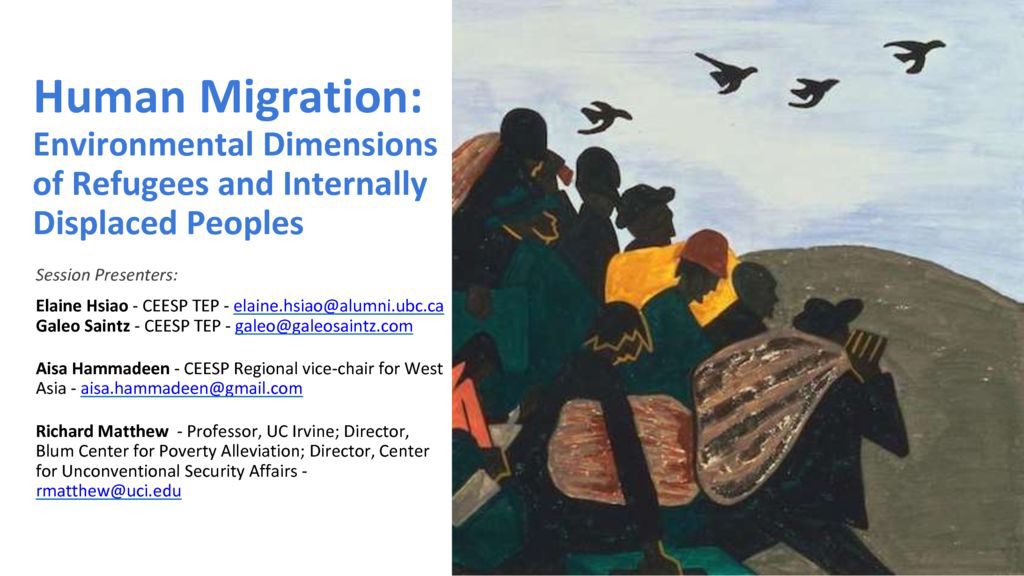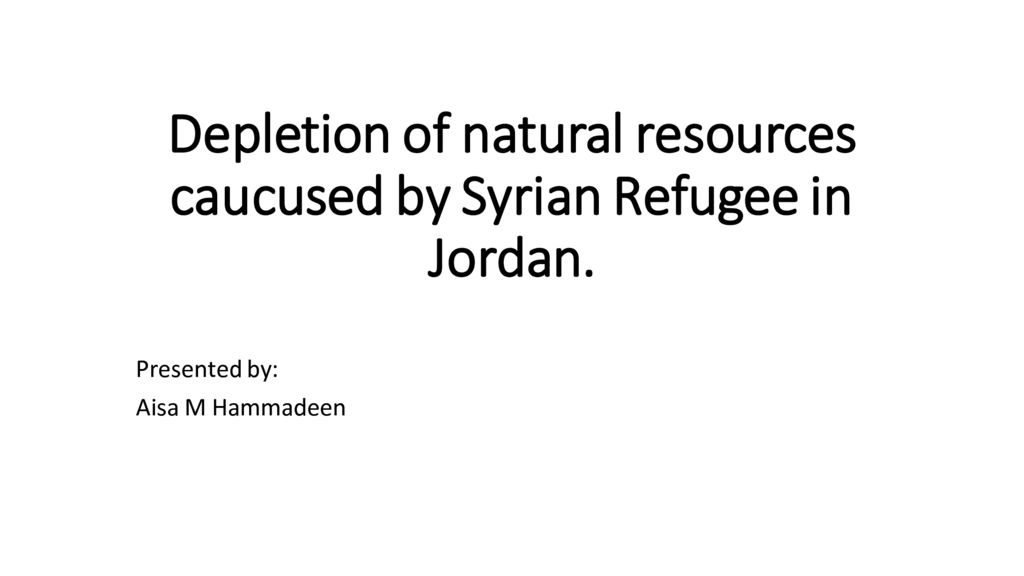12 Mar Human Migration and Environment
Environmental change along with a range of economic, social and political factors (such as conflict and chronic poverty) drive displacement and migration. People are as likely to migrate to places of environmental vulnerability as from them. Subsequently, these movements can impact the resources and systems of newly adopted lands or places of settlement. While migration is understood as a threat to sensitive environments and host communities, it is also important to keep in mind, that many communities are unable to move away from locations in which they are extremely vulnerable to environmental change. This necessitates an equally important conversation on facilitated migration outside of the tropes of geopolitics and international security.
Designed as a talking circle, this session’s aim was to garner insight from conference delegates and guide the development of a Task Force within the IUCN Commission on Environmental, Economic and Social Policy (CEESP). The Task Force aims to address the impacts of migration and displacement on the environment and biodiversity, as well their broader political, economic and social dimensions.
The conversation aimed to address the following questions:
- What are the impacts of human migration on biodiversity, natural resources, protected areas, etc.? What insights and best practices are available that may mitigate negative consequences of migration and displacement?
- What environmental conditions prompt or aggravate migration and displacement?
- What other factors play an important role in driving migration and displacement?
- How can we transition away from fear narratives towards those of preparedness and socio-ecological resilience?
- How can we harness the knowledges of migrants and refugees to benefit conservation and sustainability?
- How can we approach planned and facilitated migration in parallel to the above questions?
- What is needed to better understand migration and displacement to offer policy and programmatic interventions?
Key Themes:
Governance, Rights & Conflict, Indigenous Issues, Livelihoods, Climate & Environmental Changes
Presented Material:
Elaine Hsiao (CEESP Theme on Environment+Peace), Galeo Saintz (CEESP Theme on Environment+Peace), Omer Aijazi (University of British Columbia), Richard Matthew (University of California Irvine)
Asia M. Hammadeen (Life Center for Legal Studies and Researches, CEESP Vice Chair for West Asia, member of the IUCN Environmental Law Centre (ELC), and IUCN’s World Commission on Environmental Law (WCEL))




